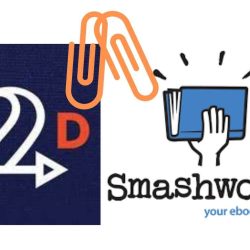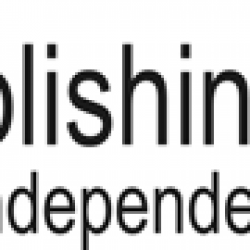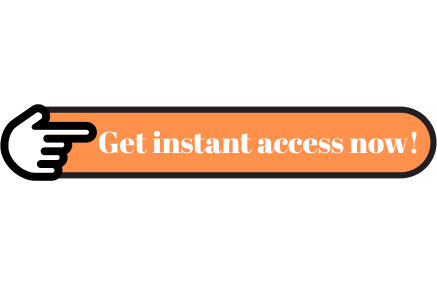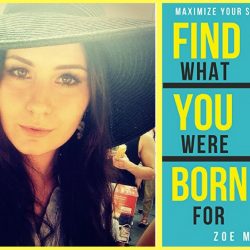
ZOE McKEY:If you write self-help, be honest
Zoe McKey is living proof that the biological age doesn’t always matter. Sometimes, even a 26 years old have precious insights to share with us. Zoe started self-publishing in 2016. She is already a best-selling author (in several paid Amazon categories) with seven self-help books under her belt and currently ranks at number 32 in the Health, Fitness & Dieting and number 40 in Business & Money. Impressive, isn’t it? Want to find out the most important elements to get you at number one on Amazon and how you get more reviews for your books? Zoe McKey has the answers.
Is self- confidence at the core of your books? What inspired you to write on this topic?
Self-confidence was the core value that led me through my 10 years spent alone from the age of 14. I learned quickly that if I hesitate someone else will say yes before me. I needed to develop the confidence to have the courage to say yes to the opportunities that appeared in front of me. If one doesn’t have faith in herself, she’ll never be able to engage in challenges that shape and educate personality. It was not a conscious thing for me in the beginning. And saying yes was rather a necessity driven in my first three years rather than focused confidence building. So if we take it so, I was extremely lucky to experience all the hardship and become a yes-machine because it made me fearless. Of course, I failed quite a few times during my learning process, no doubt I still will. I am still in a learning process after all, but on a different level now. And I have to say and share a lot of the levels I already passed through; this is why I chose this topic.
 How did you build up the confidence to write then publish your first book?
How did you build up the confidence to write then publish your first book?
It was really not a difficult decision. I had my one-day doubts, of course, like who would buy my book, who would take advice of a 26-year-old, who would pay attention to a Romanian on the international market. So I had all these fights, but at the end, I asked myself: What is the worst thing that can happen? Well that no one will buy my book, I won’t help people, and some might even criticize my work. Does this change who Zoe McKey is? No. So? I had the time, the idea and the money to jump in the business. I did as the saying says I jumped off the cliff and built my wings during the fall.
Did you ever consider getting traditionally published or it was self-publishing all the way? Why?
Honestly… I did not consider traditional publishing until now because I think about all the process as a pain in the ass. Sorry for the wording. However, I would not reject it if I’d get a reasonable offer. I think that today it is much easier to build up a name, a brand as a self-published author than to beg door to door for a publisher and give control totally out of your hand (if you succeed to get somebody to publish your book). Not to mention if you don’t have a name, even if someone is willing to publish your book, you’ll get much less money for it than if you already can show up some successes and interest. I know it sounds pretty materialistic, but why not reaping the most of the crop you sow?
What were the most important elements that got you at no1 on Amazon?
Well you have actually to publish a book, right? Just like that joke: Poor dude: Please please God, let me win the lottery!! God: Ok, but then please please buy a ticket.
Of course, you have to like what you write about, but it also has to have something useful, helpful, thoughtful message for your readers. So maybe you are interested and totally into possums mating habits, but… who would buy it? So your idea has to attract a significant amount of crowd. Confidence in this regard is an evergreen topic. What matter even more than the content (especially if we take digital books) are the title and the cover of your book. I know, quite shallow, but think about your habits when you search for a book. You look for the one with an attractive cover that has a taleteller title. Your eyes get attracted to one book thanks to the cover and stay in your hands thanks to the title. You can have the most valuable content in the world if nobody will notice your book among the other thousand being on the self. This doesn’t mean you shouldn’t have anything of value in the book because if people don’t like it, they will not buy your next books, they will reward you with a bunch of one-star reviews on Amazon and after that, there is no cover or title that can save you. So one sentence answer to your question: title, cover, content should all be “good enough” to brilliant to get special attention as a self-published author.
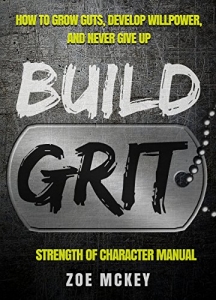 Your books have an impressive number of reviews. How do you get those?
Your books have an impressive number of reviews. How do you get those?
Haha, I think I have rather very few reviews. Well most of them I get from readers after purchasing and reading my books. Another few I get by sending out a few free copies to random people (who are interested) before publishing and I ask an honest review in exchange. I also am very opened to get emails from my readers – and I do. So I keep in touch with them regularly, and I send free copies for them, too. They are genuinely interested in my work; that’s why they contacted me in the first place. They form my stable reviewer force, to be honest.
What advice would you give to someone who wants to write in the self-help genre?
I’d say just be honest. You don’t have to write the most complex solution mojo to please the readers. Actually, you shouldn’t try to please anybody at all. Write what you believe in, what practices, quotes, ideas helped you. You don’t have to be flawless. Just be who you are. People can always connect better with someone who has flaws and weaknesses than Mr. or Mrs. Perfection.
What do you like most about being an author?
Haha, this is a good question because what I like about it the most is what I hate about it too – freedom. I love it because I have nobody to give explanations to, I wake up and sleep when I wish, I can work wherever, whenever… Sounds pretty enviable right? Well, it’s not when you have to convince your lazy head to wake up and work – when you have to defeat you inner “five more minutes” demon knowing that there is no direct consequence if you don’t. But there can be long-term consequences if you don’t have a system in your freedom. In 4 words: you won’t earn money. No money, no food, no whenever wherever.The amount of work you put in the more you can take out. And not only financially. That’s just the necessary, but a useful side effect. If you become better and better in what you do, you can be a greater service to your audience. They will get more of your products; their lives will improve more. And honestly, I love getting those emails from random people telling me about how much they liked something they read from my book, or how much they’ve learned. This is another invaluable reason why I wouldn’t be anything else in the world.
What’s your next book about?
My next book is about how to defeat procrastination, become more productive and establish systems in your life that will help you stay on track with your deadlines. We all have them – it doesn’t matter if you are an employee or self-employed like me, we can’t avoid them. Unless we go up humming on the mountain top. But that’s another story. The book was inspired precisely by the story I told you in question 11. We all tend to procrastinate from time to time – doesn’t matter if because of a premature success or because the lack of motivation, fear… We do it. But we can also undo it with discipline and motivation boosts. And the HOWs will be told by my book Daily Routine Makeover.



